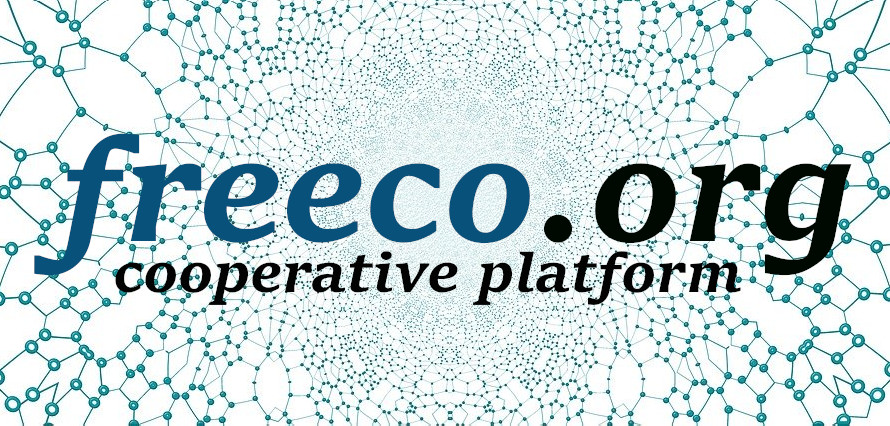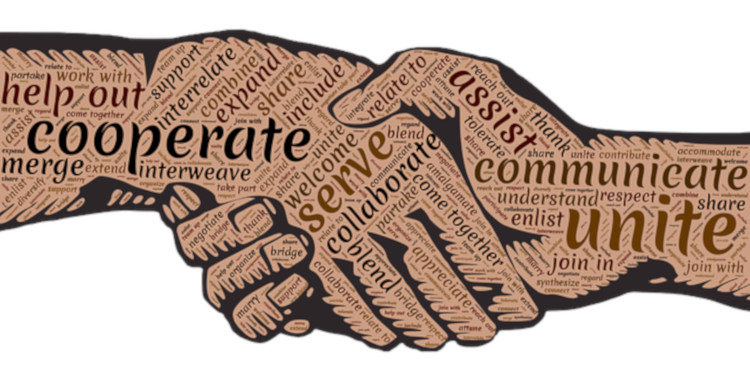Why?
Recent financial crises have highlighted the fragility of a financialized and globalized economic system. A system which assures neither autonomy nor security for the population. This is further evidenced by an increase in the relocalization of the manufacturing of essential products, in localism (the greater consumption of locally produced products), as well as a better redistribution of produced wealth and increasing democratizations of the economic sector.
However, this diagnosis of the current economic system was established well before these crises. It is no longer time for discussion, but for action; and this is precisely the motivation behind this project.
These aspirations are shared by many of us, and they may even become the majority opinion from now on. There are many speeches that talk about these aspirations, but they often remain wishful thinking because they do not describe the “how”, or they are subject to the approval of some controlling board. It is precisely this question of “how” that is dealt with here. How, starting from square one and without institutional approval, can these now imperative changes be made concretely?
Starting from the assessment that a “vertical” economy is a destructive, out-of-control system, it is then necessary to go head-to-head using a horizontal economic system. A system based on collective intelligence coordinated in a network, is capable of establishing itself, and that can compete with the current system.
How?
The singularly operational direction of this platform should confer it a real social and economic value, while at the same time creating a place for learning self-management and cooperation.
We see it as a “deuberization” tool that is capable of giving back to its users, but also as a means of transition towards a cooperative, united, and reciprocal economy. An economy which puts humanity and ecology at the center of its concerns.
It will have a social and environmental ethics character, the acceptance of which will be the only condition to take advantage of this network’s benefits. Any and all individuals or entities willing to respect this character can become members: non-profits, CSAs, businesses (starting with co-ops), freelancers, local communities (especially small towns and villages that wish to organize a communal loan), etc.
This new virtuous economic system is set to become a method of redistribution: money that enters the system, particularly that which enters via direct sales in short supply chains or group purchasing in particular, goes directly and without almost no loss to the local producers, freelancers, cooperatives, and whoever else acts in accordance to the ethics laid out in the charter. Likewise, it takes inspiration from ant colony algorithms to design logistics flows that optimize routes to take the shortest possible distance through the network.
We can categorize 4 distinct types of economic exchange that we can transform with this tool:
- “Peer-to-peer” (P2P), from person to person.
- “Producer to consumer” (P2C), often used in the local distribution of food, such as in CSAs.
- “Business to business” (B2B), : no consumers involved.
- “Business to consumer” (B2C), for all types of products and services
The dedicated module page will describe their functions and explain how these transformations can be made.
Development Strategy
The modular structure of the platform is just as important as its singular direction. The project as a whole is a cumulative effort, so it is better to divide it into several steps, or practical modules, of where there are currently 11.
There is a chronology that needs to be respected while carrying out the project. The first modules can work with around ten to a hundred participants, the subsequent modules need several thousand, and the final ones require much more staff, nearing a hundred thousand or more members. This progression is the key to the overall success of the project.
For example, the project must begin by completing the first four modules:
- Project Management Software - Collective Decision Tools
- Crowdfunding
- Group Purchasing
- Direct sales
If these functions gain enough traction and bring together enough members, the next services can be launched. Certain modules require a minimum number of users to be viable, such as ridesharing, or even more so mutual organizations or collaborative search engines.
This project is ambitious, but it is technically sound and realistically designed. Its progressive strategy allows it to start very small and to then grow without limits, one step at a time.
The publicity needed to make this platform known can be done by each participant in their own jobs or via social networks, hopefully going viral. Each member will therefore play a direct role in the platform’s development.
The Name Freeco.org
Once the platform is finished in Open Source, the intent is to make it available in many languages.
The name Freeco.org was chosen to be understood internationally. In addition, it is short, easy to remember, and consists of the principal foundational concepts :
- FREE for freedom, no-cost, independent, open source…
- ECO for economy (in the true sense of the word) and ecology.
- CO for cooperative and collaborative.
- And the extension .ORG, which is generally reserved for non-profits.








